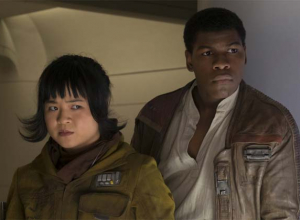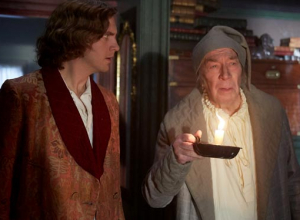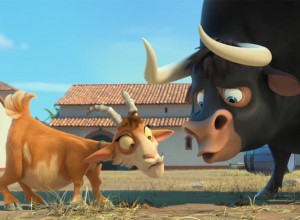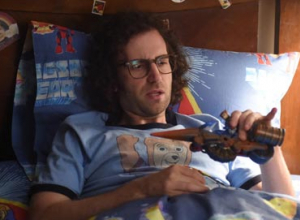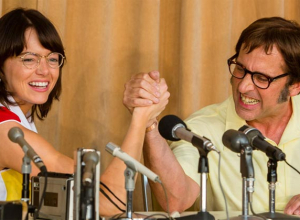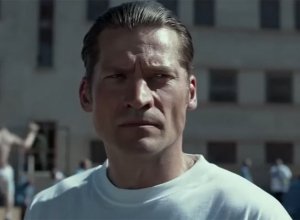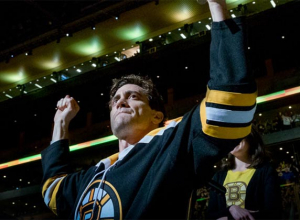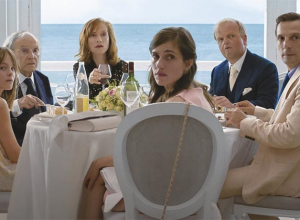Mayor of the Sunset Strip Review
By Chris Barsanti
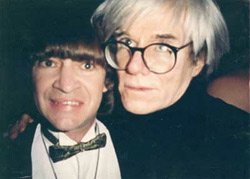
To look at the life of Rodney is to look at a near-complete history of several decades of music. A shy kid from a broken home, Rodney left Mountain View, California, for Hollywood in the early 1960s and never really left. Quickly making himself at home on the Sunset Strip scene, Rodney surrounded himself with every kind of celebrity, especially from the music industry. One interviewee after another comments on his Andy Warhol-like blank demeanor that allows the famous and talented to see reflections of themselves. But there is also an eternally childlike innocence to him that was quickly picked up on: Cher, who practically adopted Rodney for a time with Sonny, talks about how you could just tell that Rodney never wanted anything from you, just to be there and absorb the glittery experience was enough. There's a sense of a kid trying to make up for his own fractured past with a famous family, and also just looking for someone to take care of him.
By the early '70s, Rodney became more of a tastemaker, able to pick out that one demo that signaled a rising talent, and opened his own nightclub, the English Disco. Between the club and his mingling, Rodney essentially brought glam to America, introducing the L.A. glitterati to an odd, thin man named David Bowie. Later in the decade, Rodney settled into his KROQ gig, the first station on the west coast to play records from the Ramones, Blondie, the Sex Pistols, Dead Kennedys, Dramarama, and so on. Although he's been instrumental in pushing newer bands like Coldplay and No Doubt (who both join the endless cavalcade of stars in this film who gush over the debt that the music industry owes Rodney), there's the sense that time may have passed him by, that the crushing machinery of demographics and laser-focused market research has eliminated the need for people like him.
It's unfortunate that Hickenlooper doesn't seem content with telling Rodney's story, when it should be plenty for any documentary. There are narrative strings about the nature of celebrity and Rodney's family life that dwindle into nothing, but more troubling is the needling manner of the filmmaker. For seemingly no better reason than to capture some drama, Hickenlooper tries to drag emotional responses out of the taciturn Rodney, pushing him toward embarrassing admissions and generally creating the impression that somehow his life is empty. As a filmmaker, Hickenlooper deserves acclaim for the all-star lineup of interviewees - there's more marquee names here than at a Grammy Awards show - but there's a certain feeling of judgment that hangs over the film's latter scenes that makes one wonder why it couldn't have been at least a little more generous to this Peter Pan of alternative music?
When asked more about himself, Rodney typically deflects, even at one time nervously saying, "Cut." He tries to leave more to the imagination, preferring not to unload his entire life history out on to the screen, because ultimately he's probably baffled by the attention. While this reticence can make for a somewhat incomplete portrait, it does leave one with more respect for Rodney than would be imagined; how rare the showbiz person who doesn't open up like a wallet at the first available opportunity. And it makes Hickenlooper's borderline exploitative manner all the more bothersome.
Warhol v. Warhol?
Facts and Figures
Year: 2003
Run time: 94 mins
In Theaters: Friday 26th March 2004
Distributed by: First Look Pictures
Reviews
Contactmusic.com: 2.5 / 5
Rotten Tomatoes: 87%
Fresh: 66 Rotten: 10
IMDB: 7.1 / 10
Cast & Crew
Director: George Hickenlooper
Producer: Christopher Paul Carter, Greg Little, Donald Zuckerman
Screenwriter: George Hickenlooper
Starring: Rodney Bingenheimer as Himself
Also starring: Ronald Vaughan, Kim Fowley, David Bowie, Cher, Nancy Sinatra, Brooke Shields, Joan Jett, Gwen Stefani, Chris Martin, Courtney Love, Brian Wilson, Michael Des Barres, Pamela des Barres, Alice Cooper, Davy Jones, Ray Manzarek, Danny Sugerman, Camille Chancery, Christopher Paul Carter, Greg Little, Donald Zuckerman, George Hickenlooper
